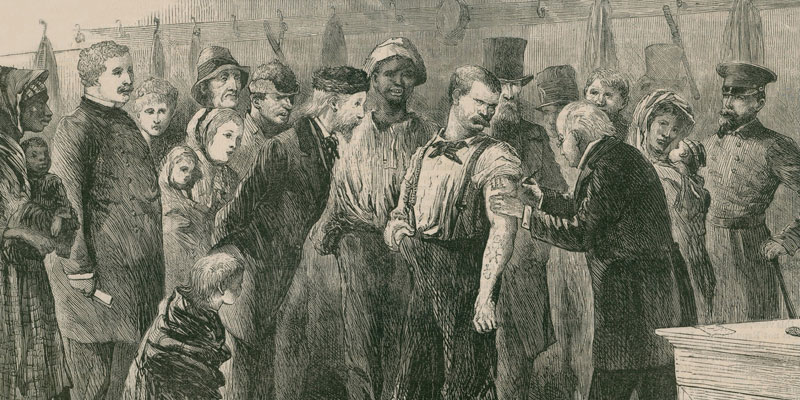The history of global health policy design and implementation
-
Case study
- Health and Wellbeing
Our research is changing policy and practice at the World Health Organization (WHO) and its regional offices by working with them to promote institutional transparency.

The issue
The World Health Organization (WHO) is the authority for health within the United Nations, with 7,000 staff members working in 150 countries. Its work is wide ranging; WHO priorities include eradicating infectious diseases, preventing chronic diseases and mental health promotion.
To tackle major health problems it is important to learn from the lessons of previous successful health programmes, and avoid repeating mistakes. But the WHO did not have any established processes to disseminate independent historical analysis of its health programmes. Documenting and sharing these histories would provide health researchers, practitioners and policymakers with a valuable resource.
The research
Through our research we are driving historical thinking in international and national health activities.
Our work on vaccination, concepts and practices of disease elimination and eradication, and medical migration demonstrates how successes of national initiatives around the world became the basis of the expansion and intensification of the eradication programme by WHO Regional Offices and the WHO HQ.
A project we conducted on smallpox control and eradication in South Asia, with special reference to East Pakistan and Bangladesh and the Himalayan States during 1947-1980, highlighted how powerful countries retain control over the design, implementation and evaluation of immunisation policies considered important within WHO HQ and regional offices.
Our research into primary healthcare, the WHO and national governance has formed the basis for the production of the five books requested by WHO technical departments. Our researchers were leads on these books, covering health issues such as tuberculosis, tropical diseases, universal health coverage, leprosy and mental health.
Materials destroyed in the WHO archives, but made available to us by senior Indian smallpox programme officials, enabled us to look at the Indian smallpox control campaign between 1957 and 1967. This campaign was a regional pilot for the wider smallpox eradication programme advocated by the WHO. The initial successes in India were used to justify an expansion across the WHO’s Southeast Asia Region and further afield.
The outcome
The impacts on WHO HQ, at regional offices and national governments include:
- the creation of new international policy networks
- the production of public engagement materials based on historical research
- enhanced training in historical approaches for senior health officials
- national policy change to include historical research in health policy
Our research has been used by the WHO to forge productive new links with national governments. These new working relationships were built on a common recognition that historical methods offer significant benefits for health research. Training in historical methods is now provided for senior health policy officials at WHO HQ, regional offices and in individual nation states, including Brazil, India and Sri Lanka.
Our work to develop a better understanding of the diverse sociopolitical conditions within project locations has ensured that historical thinking is now incorporated in international and national health activities in an unprecedented way.

Alexander Medcalf
Research Title: Lecturer in the History of Science and Medicine International Officer, Department of History
Dr Medcalf is a historian of visual culture, specialising in public health and medicine, marketing, and transport in the 20th-century, with a particular interest in the history of photography.
